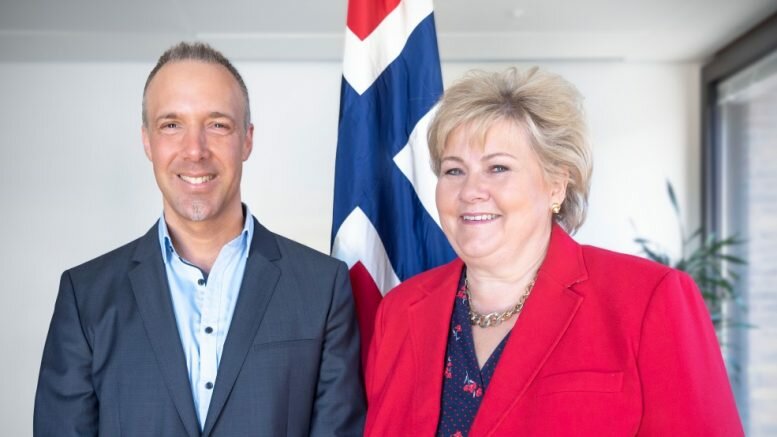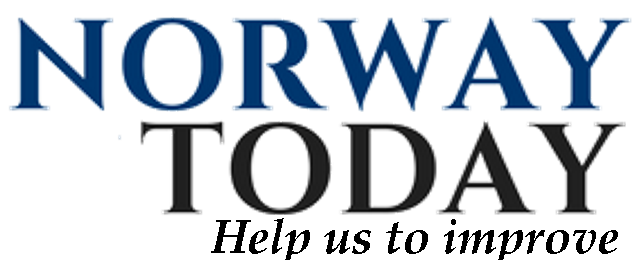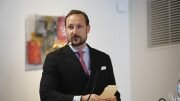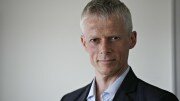Interview with Erna Solberg, Prime Minister of Norway
Faces of Democracy recently interviewed Norwegian Prime Minister, Erna Solberg (Conservatives). Norway Today has been granted permission to publish the interview, made by the founder of Faces of Democracy, Sven Lilienström.
Lilienström’s chat with Erna Solberg revolves around the role of civil society in Norway, the benefits of the European Economic Area for Norway’s businesses and her vision for Norway’s future role in the world.
The most democratic country in the world
Ms Prime Minister, according to the latest EUI democracy index, Norway is the most democratic country in the world. how significant are democracy and democratic values to you personally?
Erna Solberg: They are extremely important. One of the things I am most proud of about Norway is the fact that our citizens trust their institutions and politicians. This makes politics much less complicated. It’s easier to drive change when citizens trust in your objectives. I also link this very closely to the fact that we have a high number of non-governmental organizations here in Norway.
Civil society plays a major role in Norway. Many Norwegians are actively involved in more than one civil society organization. This means they participate in local democracy, or in the sectors and areas in which they work or have their interest. In fact, the amount of voluntary work done by Norwegians is tremendous and I think this also forms part of the social fabric of Norway, perhaps even Scandinavia as a whole. Doing so much unpaid work for other causes is something that ties our society closer together.
Closeness to the EU
Norway is not an Eu member state. however, it is part of the European Economic Area – which has existed since 1994 – and is also a Schengen member state. how important to your country is a close partnership with the EU?
Erna Solberg: It’s very important from an economic perspective. We conducted a major review of the EEA Agreement – our economic link – through a major commission that was, I believe, established ten years ago.
The commission’s findings showed that the benefits are much greater than the problems. While there are downsides to the type of relationship we have with the EU, the benefits far outweigh them. These benefits are primarily close cooperation for businesses and enhanced market opportunities. Norway, and in fact all of the Scandinavian countries, have accepted the most labour migrants from other European countries. But workers from the EU countries have contributed to the economic growth of our country. I think this is the reason why EU labour migration hasn’t created the same kind of friction as in other countries.
There are challenges in the labour market; there are challenges with shady businesses that do not comply with our labour market rules and regulations and therefore compete unfairly’, we need to address the problem of social dumping, which is an area where we would like to see closer European cooperation to stop border-crossing crime. Still, the overall picture is that the EEA agreement ensures opportunities for our businesses, it maintains welfare standards for our society and it boosts job creation. It also ensures a high degree of cooperation between the Norwegian non-governmental sector and the non-governmental sectors of other countries. This is especially true of the Central European countries. This is because our financial contribution through the EEA and Norway grants foster closer cooperation between organizations in the former Eastern European countries.
The threat from right-wing populists
Right-wing populist movements are gaining ground in parts of Europe and are also present in Norway. do you consider the populists to be more of a risk or rather a potentially corrective force for democracy in your country?
Erna Solberg: I believe that you should always have respect for people’s votes and opinions. In my government, we have a faction that is to the right of the conservative party, or more liberalist-leaning. In my opinion, however, this is not the sort of right-wing political faction that exists in other countries, although it has traditionally been stricter on migration than other parties in Norway. But, being a liberalist faction, it naturally tends towards lower taxation and the party is absolutely within the spectrum of European mainstream politics.
One disturbing thing is hate speech in social media. This is causing changes, not so much in politics, but by creating a toxic debate climate in Norwegian social media. This is challenging because we are seeing increased Islamophobia and increased scepticism towards migration, linked with anti-climate policies and EU scepticism. All of this sometimes gives rise to a very toxic debate in social media.
Yesterday we had a large civil rally aimed at stopping hate speech and to encourage more moderate discussions in social media. I’m not sure that it will help, but it does give stimulus to those who want a more respectful form of debate on Facebook and other social media sites.
2019 world press freedom index
The results of the “2019 world press freedom index” show that, for the third year running, Norway’s press is ranked first. why does Scandinavia – and Norway in particular – always rank so well in the index?
Erna Solberg: I think it’s because of the high degree of press freedom we have in Norway. We have very few laws that limit media coverage and news outlets. We also have a fairly open public sector in terms of the right of the press to know about the decisions we make.
Norway also has many newspapers and still has a large local newspaper sector. We provide public financial support to some local media outlets and media outlets that traditionally voiced the opinion of specific groups. Whether this system of public financial support is still up to date is perhaps debatable, but we still offer that sort of support for the press.
We also have a system in Norway where – instead of using laws – the media governs itself. We have a regulatory system that places the newspapers and media houses under an obligation to critical, but balanced conduct. The media have their own governing body in the form of a committee which reviews cases. It can determine, for instance, if insufficient significance had been given to providing a second opinion or if a person had not been allowed enough space to air their views. The mainstream media organisations are indeed observing these regulations. Participating media are required to publish the verdicts of the media advisory board if the board finds, for instance, that they have violated the right to respond of a person being criticised.
The Withdrawal from the INF treaty
on April 4, NATO celebrated its 70th anniversary. is the strategic focus of the military alliance still in keeping with the times, and what does the withdrawal from the INF treaty mean for NATO and for Europe?
Erna Solberg: I think the strategic changes that were made at the NATO Chicago Summit in 2012 were very important and they show how the focus is increasingly shifting back to the collective defence of Europe and North America. Furthermore, much more contingency planning was also commenced. And this was before 2014, before the Russian annexation of Crimea. The former Norwegian government – and indeed the whole debate in Norway – pushed very much for this to happen in the face of increased militarization in the Euro-Atlantic area.
Taking into consideration the increased scope and strength on the Russian side I think the decisions made at the NATO Summit in Warsaw in 2016 on the maritime side were right. They have also been important in order to make NATO fitter for purpose. This has been very important to Norway. So I think today’s strategic scope of NATO is in fact well adapted to the situation.
We regret that the INF Treaty is being dissolved. The INF Treaty has been important for stability and security in Europe for more than 30 years. I do not think that anyone will gain from a new missile arms race in Europe. We hope that a balanced system of disarmament will be achieved. With the changes taking place in the world today, countries like China should also be participating in this. We should not only be looking to Russia, the US and NATO. Norway will continue to work towards arms control, disarmament and non-proliferation, which is crucial to security and stability. Our hope is to return to the issue of eliminating missiles because no one stands to gain from an acceleration of the arms race.
The gender gap
According to the current “global gender gap report”, Norway ranks second in terms of the gender pay gap. what can other countries learn from Norway to help them close their gender pay gaps?
Erna Solberg: There are different reasons why we have a narrower gender pay gap. We have a system of laws and regulations and if you consider women and men in the same type of jobs, they are mostly equally paid. But we still have a difference between different sectors that require the same level of responsibilities and education or training; there is still a gap here. Still, the true gap facing us is between different sectors. For instance, the length of study for engineers and nurses is the same, but they receive different pay because engineers are more likely to work in the private sector. And we have to an extent a gender-divided labour-market, where certain sectors are extremely dominated by either women or men. I’m not sure that we will ever manage to correct this situation completely.
But I do think that having unions that focus on equal pay is important. We have an ombudsman system and an anti-discrimination act that allows workers to complain to their ombudsman or anti-discrimination committee that they are not receiving equal pay. In fact, there are hardly any cases these days because equal pay has become the norm. I firmly believe that especially the efforts of the unions and the benefits of this system are responsible for this.
Companies in Norway are also obliged to report on their anti-discrimination activities to ensure that equal rights are observed. All of this places the focus of business thinking on asking why their payrolls exhibit different pay for men and women. Everything that you measure gets managed in a way. And I think that measuring the changes that require the most management within a company will deliver a good answer.
Norway’s future role in the world
Ms Prime Minister, your second term in office ends in 2021. which issues are still on your political and personal agenda and what is your vision for Norway’s future role in the world?
Erna Solberg: That’s quite a question! In Norway, we’ve been through a situation where we have experienced an economic downturn because of the drop in the oil price. Our economy showed that it had the strength and resilience to bounce back after increased unemployment and we have now become more competitive in the oil and gas sector.
The great challenge facing Norway is that the oil and gas sector will contribute less to our growth because our oil and gas investments and production are currently peaking, so the output will be reduced in the future. Oil and gas will, however, remain a major industry in Norway for a long time – but that’s not where we are going to keep focusing.
So we will be facing the same issues as most other European countries. How can we create more jobs in a more competitive and globalized world? How can we make sure that we are creating new jobs if we will be losing a small number of jobs every year in the oil and gas sector?
The solution is about education. It’s about investment in research & development. It’s about the framework for businesses and start-ups in our country.
This is all very similar to the situation in most European countries. But in Norway, we have a good backbone. We are already a highly-educated, quite digitalized country. So we may deliver on some of these issues more easily than other countries that are perhaps more agricultural and are facing more challenges in terms of creating new jobs.
We have to learn from what I think have been mistakes in other places. Why are the yellow vest protests happening in France? Why is there increased support for quite radical ideas on both the right and left of the political spectrum? It may be because too little focus has been placed on those facing the greatest challenges in a time with great technological and global changes. We must, therefore, invest much more in adult education in Norway in order to make sure that people do not drop out of the labour market. To ensure that no one is left behind. Because, like everywhere else, our labour market will be facing changes.
So far, we have managed to cope with this because there has been a huge demand for very highly paid workers in the oil and gas sector. We have had enough tax revenue to pay for our welfare system. In the future, we will have to ensure that more people remain in the labour market and that the changes in our society don’t leave people outside the workforce. We must succeed in re-educating them for new types of jobs or for changing jobs within their current sector. I think this is the most challenging issue facing all European countries. Competitiveness on the business level, ensuring you provide enough jobs and making sure that you don’t leave groups behind in your own society as a result of technological change.
Ms Prime Minister, thank you very much for the interview!
About Erna Solberg
Erna Solberg (Høyre) has been Prime Minister of the Kingdom of Norway since 2013. During the parliamentary elections in autumn 2017, the 58-year-old became the first conservative politician for 30 years to hold the office of prime minister. Solberg is married to Sindre Finnes and the couple have two adult children – a son and a daughter.
© Faces of Democracy / #Norway Today











